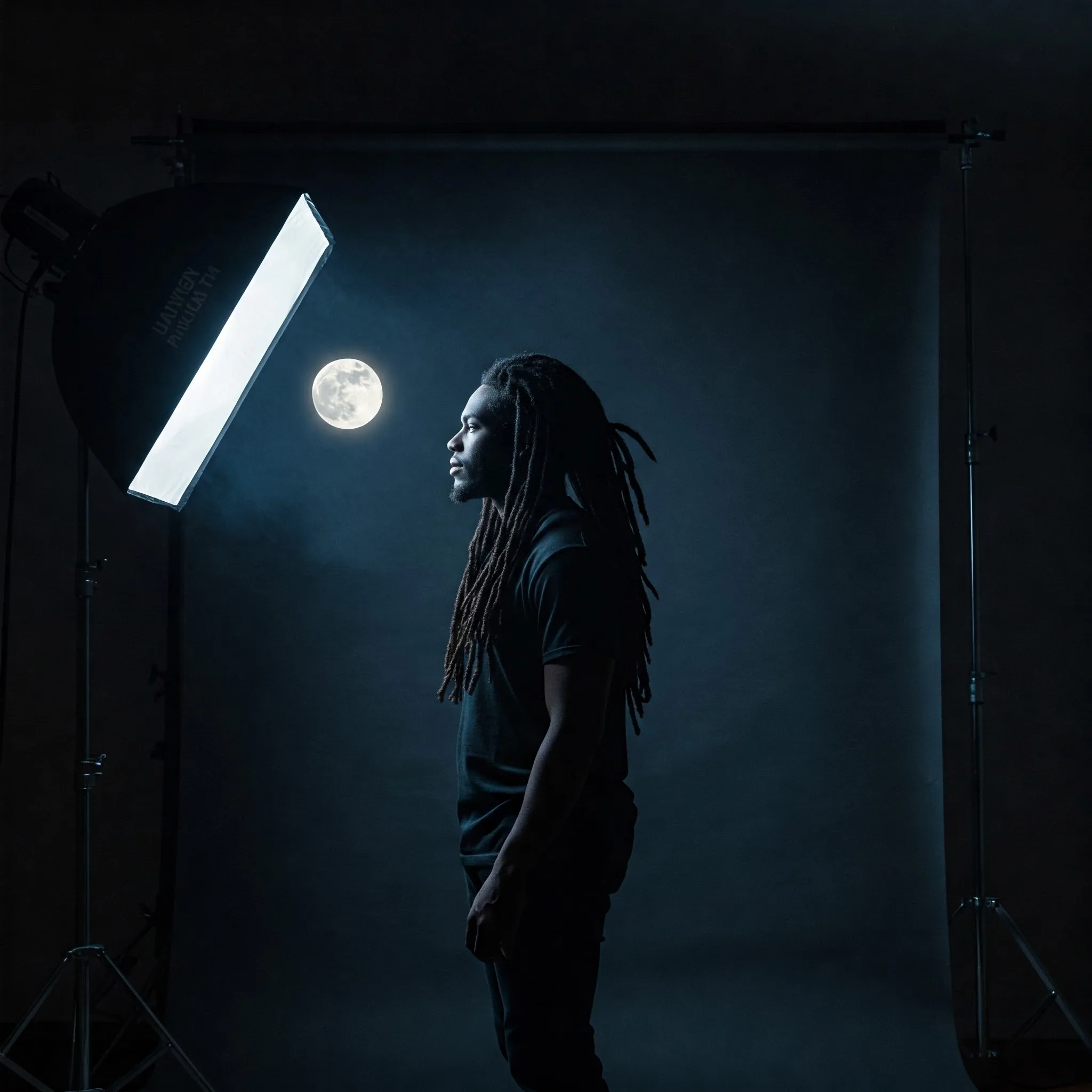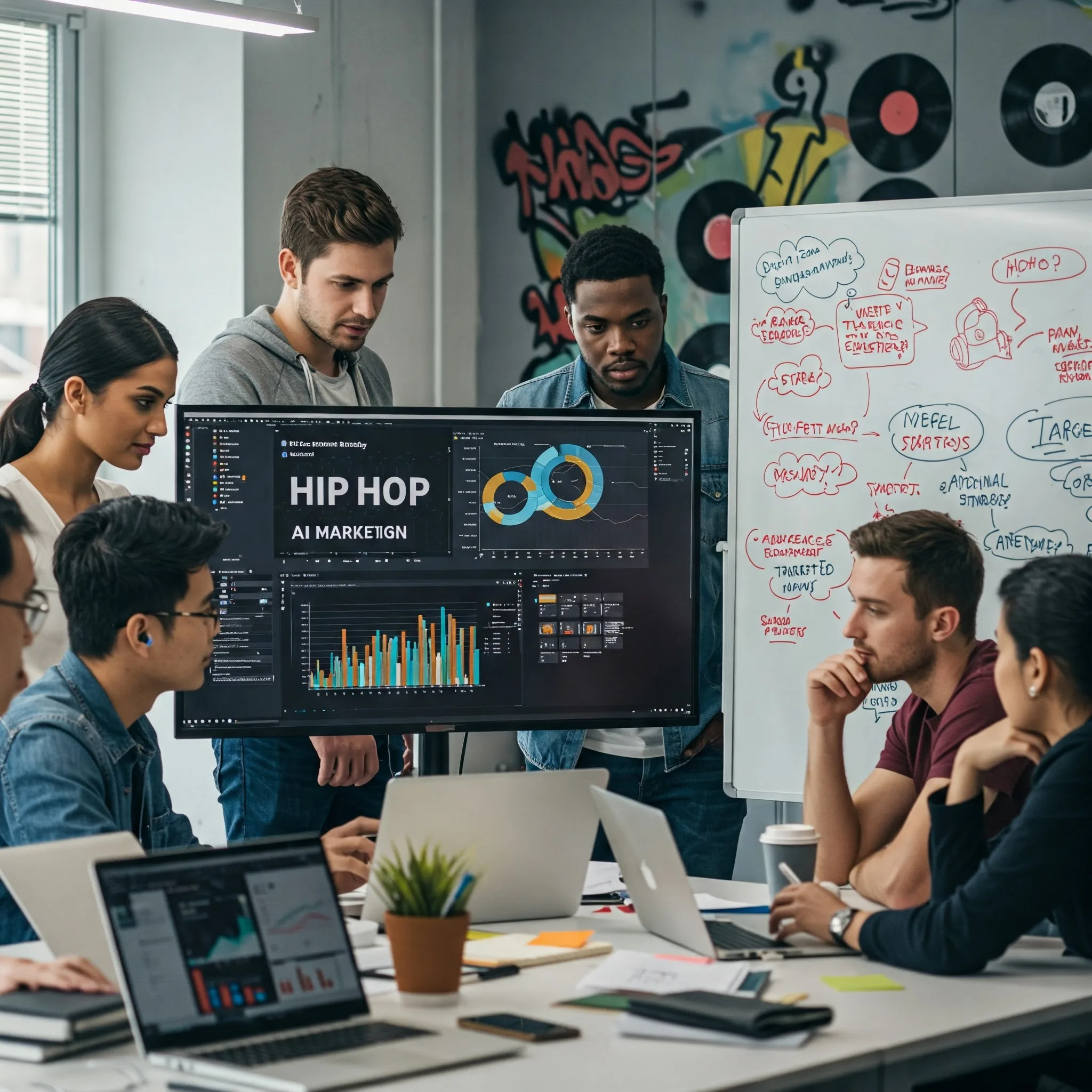Hip-hop pushes boundaries and embraces new technologies in today’s rapidly evolving music landscape. Artificial intelligence (AI) represents the next frontier for creative innovation in the genre, offering artists powerful tools to enhance their production, marketing, and overall artistry. Let’s explore how hip-hop artists can leverage AI to advance their craft while maintaining authenticity.
Beat Production and Sampling
AI-powered music production tools have revolutionized the beat-making process. Programs like AIVA, Amper Music, and Google’s Magenta offer hip-hop producers the ability to:
- Generate unique beat patterns and chord progressions based on specific genres or artist influences
- Discover rare samples by analyzing vast music databases
- Clean up samples by isolating particular instruments or vocals from recordings
- Create entirely new instrumental sounds that blend traditional and futuristic elements
Atlanta-based producer Metro Boomin recently shared how he experiments with AI to discover unusual sample combinations: “AI helps me find connections between sounds I might never have considered. It’s like having a production assistant with infinite musical knowledge.”
Lyric Generation and Flow Analysis
While writing remains a deeply personal aspect of hip-hop, AI can serve as a powerful brainstorming partner:
- Generate theme-based word associations and rhyme suggestions
- Analyze flow patterns of legendary MCs to inspire new cadences
- Identify trending topics and cultural references
- Help overcome writer’s block by suggesting new angles or perspectives
Kendrick Lamar has reportedly used AI tools to analyze his flow patterns, helping him discover new rhythmic approaches for his verses. The key is using these tools as supplements rather than replacements for authentic expression.
Vocal Enhancement and Manipulation
AI vocal tools offer hip-hop artists unprecedented control over their voices:
- Real-time voice modulation during live performances
- Creating harmonies and backing vocals without additional performers
- Cleaning up vocal recordings without expensive studio time
- Voice cloning (with proper ethical considerations) for stylistic experimentation
Artists like Tyler, The Creator have embraced AI vocal processing to create alter egos and character voices that enhance their storytelling capabilities.
Marketing and Fan Engagement
Beyond the creative process, AI offers powerful tools for connecting with audiences:
- Personalized content generation for different social platforms
- AI-powered analysis of fan engagement to identify successful content strategies
- Creating interactive experiences where fans can remix or contribute to songs
- Generating custom visualizers and music videos
Travis Scott’s team employed AI to analyze fan engagement patterns across platforms, helping them craft the rollout strategy for “Utopia” by identifying the optimal timing and content types for different audience segments.
Challenges and Ethical Considerations
While AI offers incredible possibilities, hip-hop artists should approach these technologies thoughtfully:
- Maintaining Authenticity: Use AI as a tool to enhance your unique voice rather than replacing it
- Proper Attribution: Be transparent about AI usage, especially when sampling or referencing other artists
- Data Ownership: Understand how your data is being used when working with AI platforms
- Technological Accessibility: Address the potential divide between artists with and without access to advanced AI tools
In a recent interview, J. Cole noted, “Technology should amplify what’s already in your heart and mind, not replace it. The soul of hip hop is human experience.”
Getting Started with AI in Hip Hop
For artists looking to incorporate AI into their workflow:
- Start Small: Experiment with accessible AI tools like Mubert or Beatoven.ai for the beat generation
- Learn the Basics: Understand the fundamentals of how AI works to direct the tools better
- Collaborate: Partner with tech-savvy producers who understand both hip-hop and AI
- Balance Technology and Tradition: Honor hip hop’s roots while embracing innovation
- Focus on Your Unique Vision: Let AI handle technical aspects while you focus on creative direction
The Future of AI in Hip-Hop
The relationship between hip-hop and AI is just beginning. As these technologies evolve, we can expect:
- More accessible tools explicitly designed for hip-hop production
- AI systems trained on diverse global hip-hop traditions beyond mainstream American styles
- Collaborative AI platforms where artists can share resources and techniques
- New performance possibilities blending virtual and physical elements
The most exciting aspect is that hip-hop artists have always been technological innovators, from turntablism to digital sampling to online distribution. AI represents the next chapter in this legacy of creative adaptation.
As hip-hop continues to evolve, those who thoughtfully incorporate AI into their artistic process will likely discover new creative frontiers while honoring the human stories, struggles, and triumphs that have always been at the heart of the culture.
What AI tools have you experimented with in your music production? Share your experiences in the comments below!






